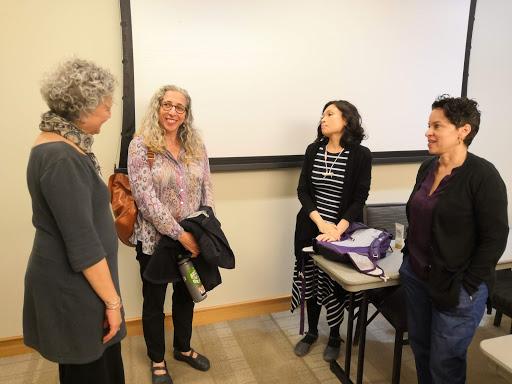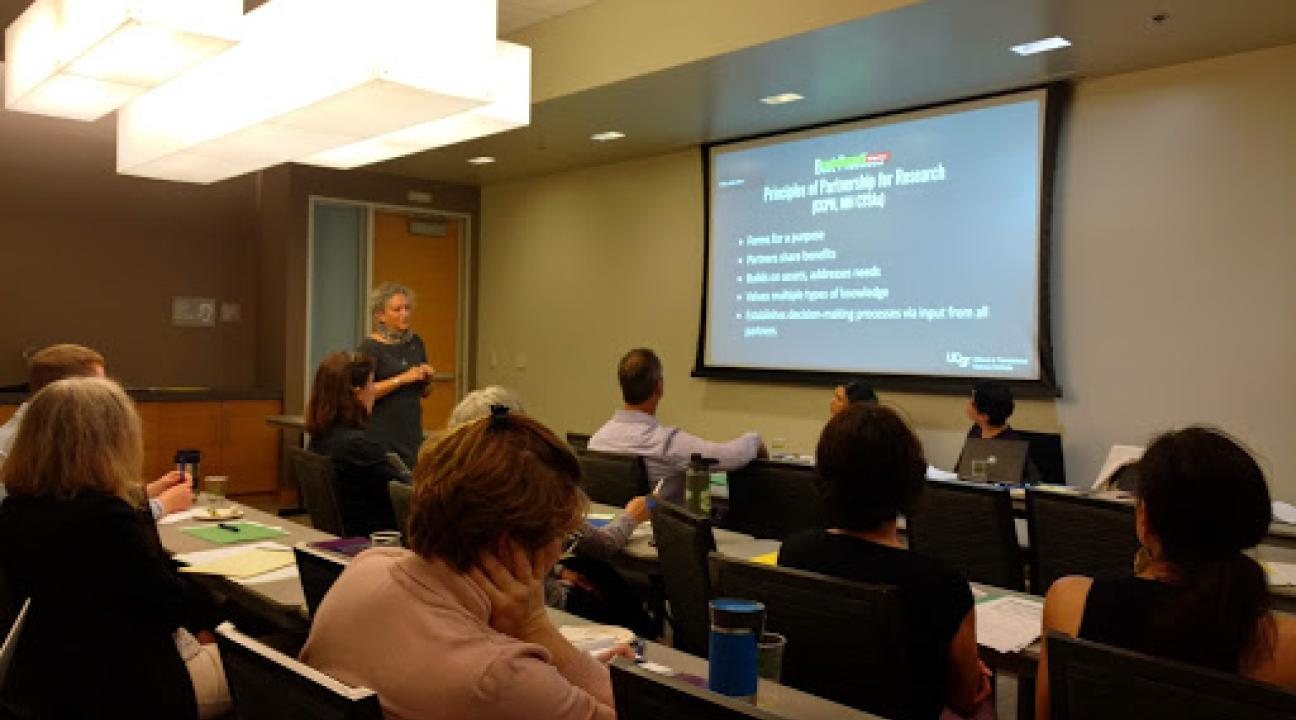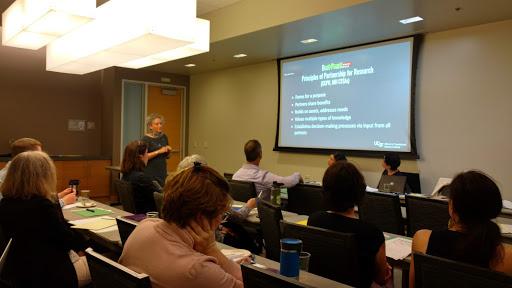Scholarship That Matters in Real Life: A Workshop on Community-Engaged Research
Scholarship That Matters in Real Life: A Workshop on Community-Engaged Research was dedicated to helping faculty understand the basics of community based research. Speakers from UCSF led the workshop and shared their personal experience working with community partners and conducting this type of research. This workshop was a great opportunity for faculty members to learn from the presenters on the best way to approach this type of research. As a student at the workshop, I thought it was interesting to see all the faculty from different departments come together to learn from the presenters and each other.
What stood out to me most was the everyone, across all disciplines, at the workshop wanted to share knowledge and work together to better the community. From breaking down barriers in STEM to Native American cultural studies, everyone was willing to learn and collaborate with a focus on helping others.
Throughout the workshop there was a strong focus on working with and not for the community. The speakers highlighted the importance of advocating for communities that need it the most and advocating for diverse communities that are not often represented. As Daphnia Melbourne put it: “They have the blueprint; you have the tools”.
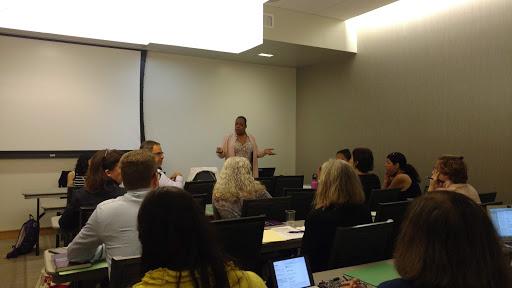
Speaker Daphina Melbourne started the
workshop by having attendees introduce
themselves.
The basis of community based participatory research is: making connections in the community, being transparent about your research work, and doing your homework on community partners. It's up to you to build trust with the community. Remember to not over promise on what you can deliver and talk with no jargon. Speakers were extremely honest with the faculty about the problems they may face during their research. You're going to make mistakes and there are going to be problems in your relationship with a community partner,but you will get through it.
During the end of the workshop when faculty were asking questions, How to get started with community based research was asked. The answer was simply: Just do it. Don't be afraid. Over time you will get more familiar with the community and could have a whole community based research program.
Overall the event was helpful for faculty, who now have the tools they need to go out into the community and start their research. One attendee said, “The most important aspect was the connections that I made with others, in particular the community partners.”
Check out more pictures from this workshop.
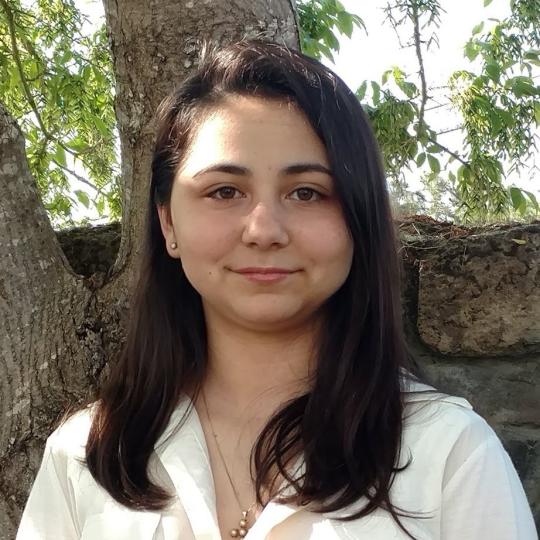
Author: Megan Marx



